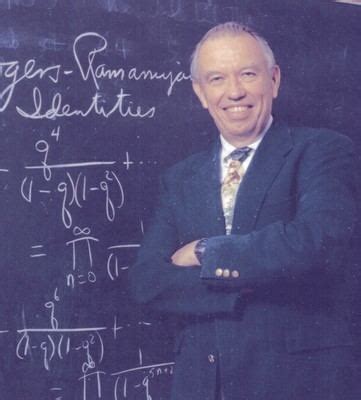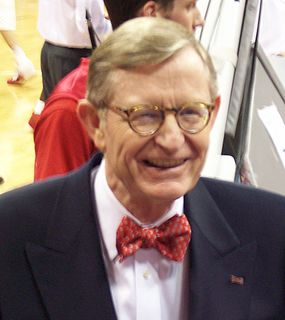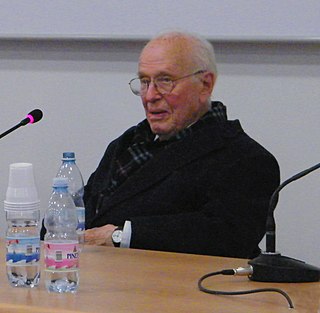A Quote by Gian-Carlo Rota
Are mathematical ideas invented or discovered? This question has been repeatedly posed by philosophers through the ages and will probably be with us forever.
Quote Topics
Related Quotes
The constructs of the mathematical mind are at the same time free and necessary. The individual mathematician feels free to define his notions and set up his axioms as he pleases. But the question is will he get his fellow mathematician interested in the constructs of his imagination. We cannot help the feeling that certain mathematical structures which have evolved through the combined efforts of the mathematical community bear the stamp of a necessity not affected by the accidents of their historical birth.
A couple of hundred years from now, maybe [science fiction writers] Isaac Asimov and Fred Pohl will be considered the important philosophers of the twentieth century, and the professional philosophers will almost all be forgotten, because they're just shallow and wrong, and their ideas aren't very powerful.
During the Middle Ages there were all kinds of crazy ideas, such as that a piece of rhinoceros horn would increase potency. Then a method was discovered for separating the ideas - which was to try one to see if it worked, and if it didn't work, to eliminate it. This method became organized, of course, into science.
Tonight, I ask for your prayers for all those who grieve, for the children whose worlds have been shattered, for all whose sense of safety and security has been threatened. And I pray they will be comforted by a power greater than any of us, spoken through the ages in Psalm 23: "Even though I walk through the valley of the shadow of death, I fear no evil, for You are with me."
Our wise old church...has discovered that if you will act as if you believed belief will be given to you; if you pray with doubt, but pray with sincerity, your doubt will be dispelled; if you will surrender yourself to the beauty of that liturgy the power of which over the human spirit has been proved by the experience of the ages, peace will descend upon you.







































